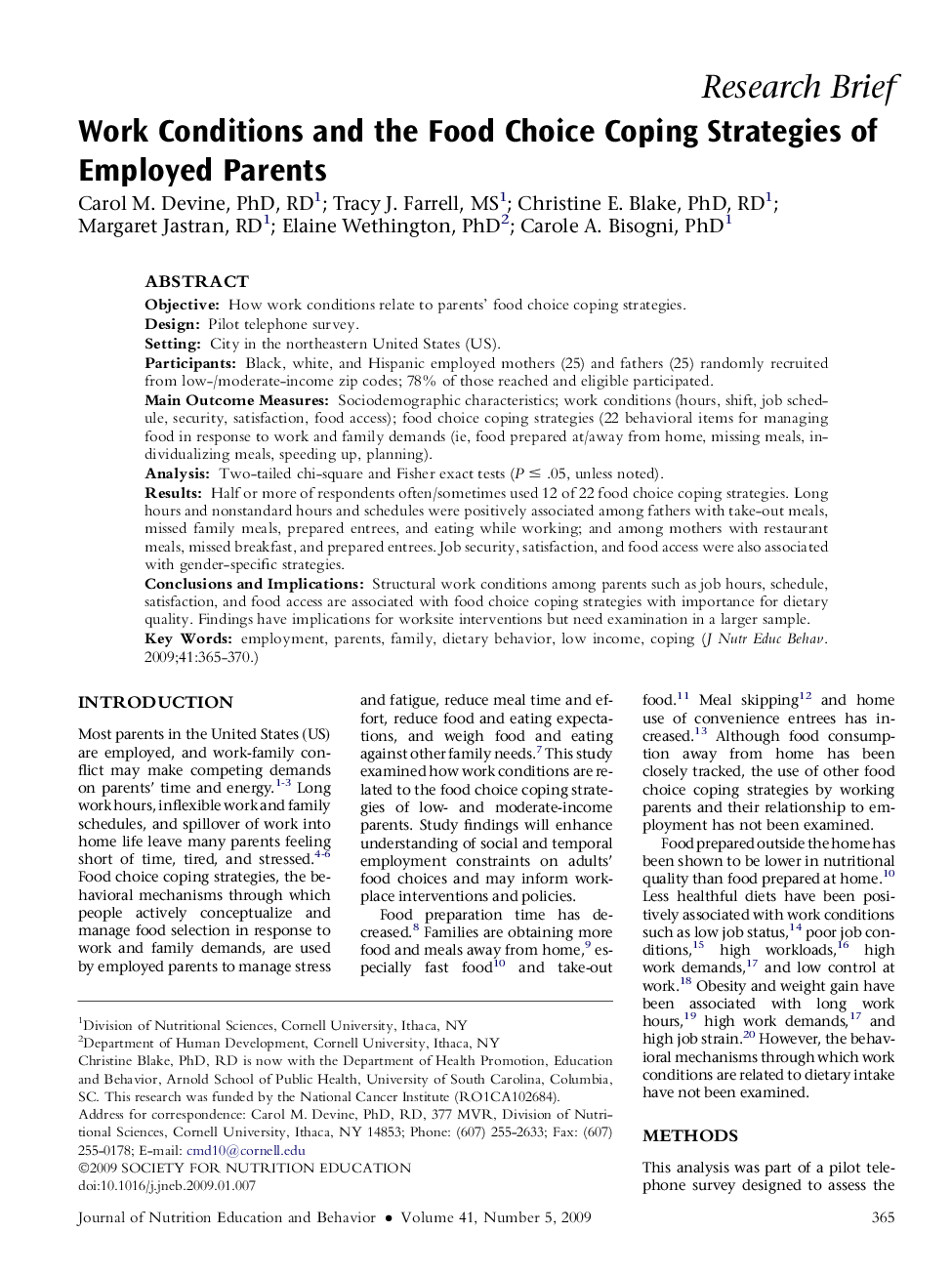| Article ID | Journal | Published Year | Pages | File Type |
|---|---|---|---|---|
| 363077 | Journal of Nutrition Education and Behavior | 2009 | 6 Pages |
ObjectiveHow work conditions relate to parents' food choice coping strategies.DesignPilot telephone survey.SettingCity in the northeastern United States (US).ParticipantsBlack, white, and Hispanic employed mothers (25) and fathers (25) randomly recruited from low-/moderate-income zip codes; 78% of those reached and eligible participated.Main Outcome MeasuresSociodemographic characteristics; work conditions (hours, shift, job schedule, security, satisfaction, food access); food choice coping strategies (22 behavioral items for managing food in response to work and family demands (ie, food prepared at/away from home, missing meals, individualizing meals, speeding up, planning).AnalysisTwo-tailed chi-square and Fisher exact tests (P ≤ .05, unless noted).ResultsHalf or more of respondents often/sometimes used 12 of 22 food choice coping strategies. Long hours and nonstandard hours and schedules were positively associated among fathers with take-out meals, missed family meals, prepared entrees, and eating while working; and among mothers with restaurant meals, missed breakfast, and prepared entrees. Job security, satisfaction, and food access were also associated with gender-specific strategies.Conclusions and ImplicationsStructural work conditions among parents such as job hours, schedule, satisfaction, and food access are associated with food choice coping strategies with importance for dietary quality. Findings have implications for worksite interventions but need examination in a larger sample.
